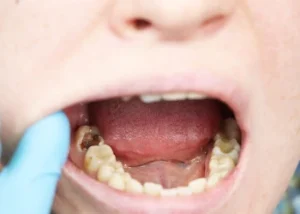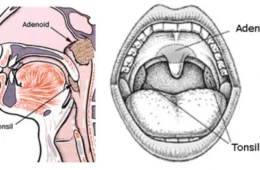
Are Cavities Genetic? The Short Answer
You brush twice a day, floss diligently, and still battle cavities. Could your genes play a role? Yes, genetics contribute to cavity risk, but they don’t tell the whole story. Tooth decay arises from a mix of inherited traits and daily habits. At EliteFixDenture.com, we help Chicago patients navigate this blend to protect their smiles.
The Role of Genetics in Cavity Formation
Genes influence how your teeth form and fight decay. Twin studies show heritability rates between 20% and 85%, meaning some people inherit a higher susceptibility. This varies by population and environment, like fluoride access or diet.
Heritability and Key Studies
Researchers compare identical twins—who share all genes—to fraternal twins. Results reveal strong genetic links to enamel strength and saliva flow, both vital against acid attacks from bacteria. While no single “cavity gene” exists, multiple variants team up to raise risk.
Genes That Matter Most
Certain genes shape your oral defenses. Here’s a quick look at top players:
| Gene | Role in Oral Health | Impact on Cavities |
| AMBN (Ameloblastin) | Builds enamel matrix | Weaker enamel leads to faster decay |
| ENAM (Enamelin) | Supports tooth mineralization | Higher caries risk in variants |
| AMY1 (Amylase Alpha 1) | Digests starches in saliva | More copies protect against sugar-fueled decay |
| CA6 (Carbonic Anhydrase VI) | Regulates saliva pH | Variants disrupt acid balance, boosting cavities |
These findings come from genome-wide studies and meta-analyses. Remember, genes load the gun—lifestyle pulls the trigger.
Environmental Factors That Interact with Genetics
Your genes set the stage, but habits direct the play. Sugary snacks feed cavity-causing bacteria, while poor brushing lets acids erode enamel. In Chicago’s dry winter air, low humidity worsens dry mouth, amplifying genetic risks.
- Diet Choices: Limit sodas and candies; opt for cheese to neutralize acids.
- Oral Hygiene: Brush with fluoride toothpaste and floss daily to shield vulnerable enamel.
- Saliva Flow: Chew sugar-free gum to boost natural defenses, especially in Lakeview’s chilly winds.
- Fluoride Use: It strengthens teeth, countering weaker genetic enamel.
Genetics and environment dance together—strong habits can override inherited weaknesses.
Genetic Disorders Linked to Higher Cavity Risk
Rare conditions heighten vulnerability. Amelogenesis imperfecta, a genetic enamel defect, leaves teeth soft and prone to rapid decay. Kids with this may need extra sealants or monitoring. Other syndromes, like those affecting saliva production, compound the issue.
Dr. Anila Sohail, our pediatric dentistry expert at EliteFixDenture.com, specializes in kids’ care and baby teeth. She guides families through these challenges with gentle, tailored plans.
Preventing Cavities: Tips for Chicago Families
Stay ahead in Lincoln Park or Lakeview by blending prevention with local savvy. Winter’s indoor heating dries mouths—sip water often and use a humidifier.
For more on genetic risks, check the American Dental Association’s guide. Or explore Healthline’s cavity prevention for kids.
FAQs: Are Cavities Genetic?
Q: Can I inherit cavities directly from my parents?
A: No, but you can inherit traits like thin enamel that raise your risk.
Q: How much do genes influence cavity risk?
A: Up to 85% in some studies, but environment matters more for prevention.
Q: Do genetic tests predict my cavity risk?
A: Not reliably yet—dentists use exams and habits for better insights.
Q: Are kids with genetic risks harder to protect?
A: Not at all. Early fluoride and checkups make a big difference.
Q: Does dry Chicago winter air affect genetic cavity risks?
A: Yes, it reduces saliva—hydrate and use mouthwash to fight back.
Q: What if my family history shows lots of cavities?
A: Share it with your dentist for proactive care, like sealants.
Q: Can lifestyle fully overcome bad genes?
A: Often yes—brushing, diet, and visits trump genetics.
Q: When should I worry about genetic disorders in my child?
A: If teeth look unusually soft or pitted, see a specialist promptly.
This article is for informational purposes only and not a substitute for professional dental advice. Consult your dentist for personalized guidance.
For expert dental care in Chicago, visit EliteFixDenture.com.





